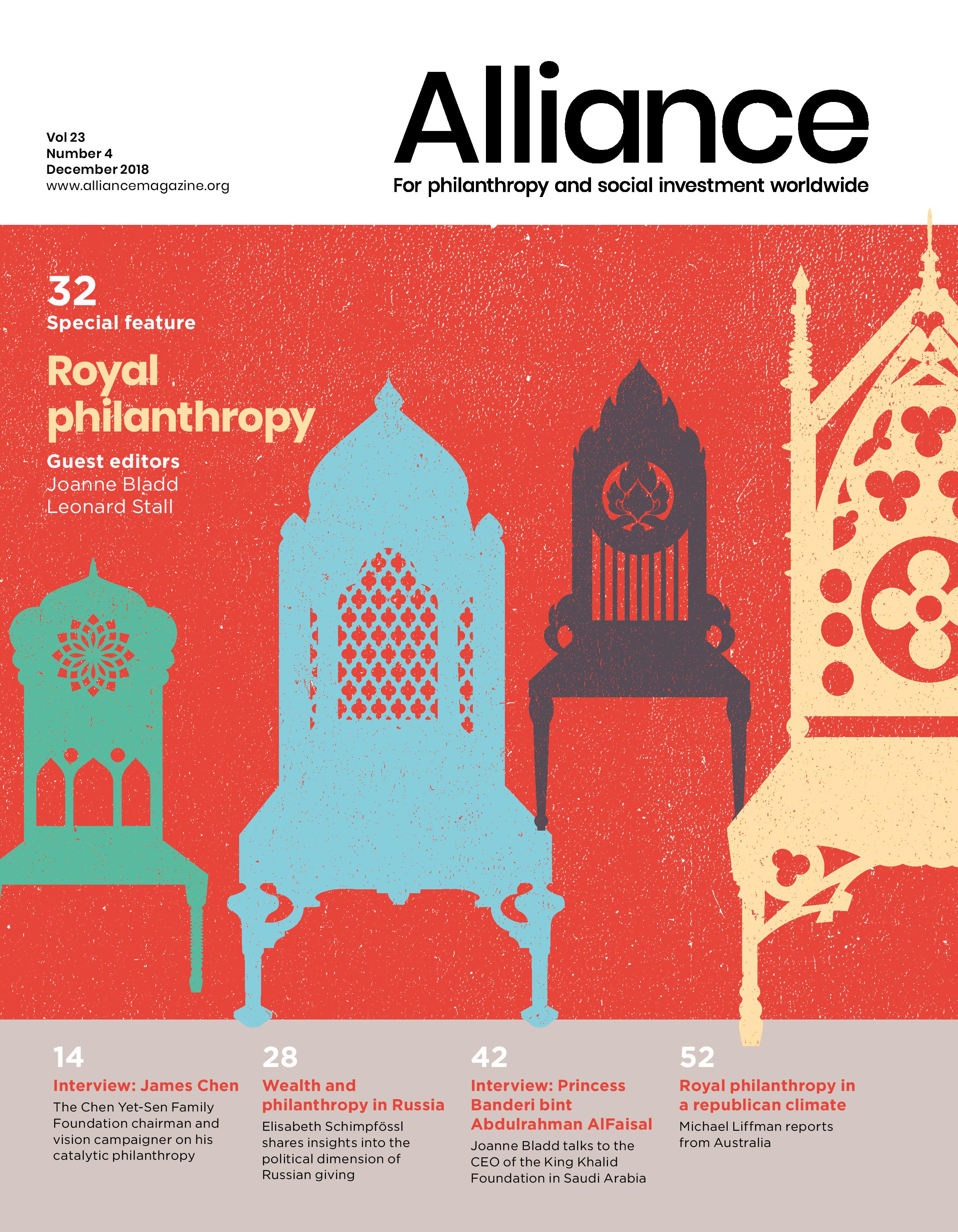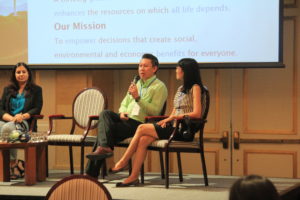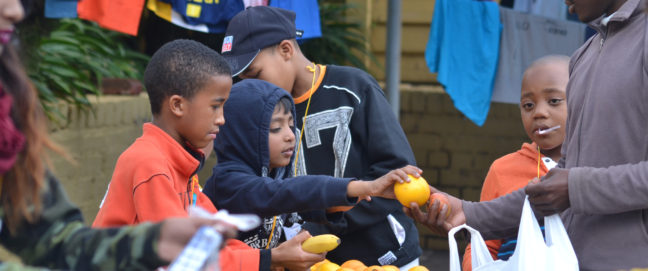The development of favourable conditions for philanthropy in Vietnam is not keeping pace with the potential generosity of its people
Mutual assistance and charitable acts in times of need is a Vietnamese tradition, and an integral part of everyday life and culture.[1] Since the country opened its doors to foreign trade in the late 1980s, Vietnam has experienced rapid economic growth and an influx of international development assistance, which has affected domestic philanthropy in both positive and negative ways.
Collective giving has a long history in Vietnam. Students, young professionals, executives, celebrities, housemakers and retirees regularly pool their resources to help those in need.
Research conducted on individual giving in Vietnam, almost six years ago, indicated a high incidence of giving although the value of such contributions fell short of their potential. Today, with the country now leading the world in terms of wealth growth, and with a middle and upper class projected to comprise a third of its population by 2020,[2] that potential appears to be growing significantly. Unfortunately, there is no current data to indicate how much people are contributing and whether the number and size of their philanthropic contributions is increasing. Anecdotally, it is likely that there is a diversity of causes to which people are contributing their funds, time and resources. People are also talking about giving and philanthropic organisations more frequently, both on and offline.
Collective giving (what many now refer to as crowdfunding) has a long history in Vietnam. Students, young professionals, executives, celebrities, housemakers and retirees regularly pool their resources to help those in need. Non-profits are engaged in a creative array of walkathons, gala dinners and auctions, which attract significant support for their causes. Nevertheless, despite high levels of internet use and great advancements in e-commerce in Vietnam, fundraisers lament the fact that there is not yet a viable platform for online crowdfunding. Existing workarounds, such as the use of foreign crowdfunding platforms, present legal and cultural challenges for Vietnamese donors and non-profits.
Corporate philanthropy falling short
Companies in Vietnam are invited to a steady stream of workshops and events to discuss corporate social responsibility, CSV (creating shared value), and the SDGs. These workshops, which are often led by international and multilateral development actors and business people, either do not mention or somehow disparage the role of civil society or the non-profit sector. A handful of local non-profits based in Hanoi and Ho Chi Minh City recently began to proactively facilitate new and improved partnerships between non-profits and businesses.
Perhaps the most serious abiding problems lie in the realm of regulation and information. Vietnamese law still does not define ‘fundraising activities’, nor does it provide clear guidance on permissible forms of fundraising by non-profits, which limits their fundraising capacity.
Local people are hopeful that increased corporate attention and orientation towards sustainable development may lead to a concerted focus on impact and the companies’ own accountability. As it stands, most corporate giving is primarily focused on brand image, which can prevent broader partnerships or the micromanagement of projects they decide to support. Insiders report that social and environmental initiatives are driven by the interests of corporate leaders or individual staff members, rather than a guiding corporate strategy.
Infrastructural problems
Perhaps the most serious abiding problems, however, lie in the realm of regulation and information. Vietnamese law still does not define ‘fundraising activities’, nor does it provide clear guidance on permissible forms of fundraising by non-profits, which limits their fundraising capacity. Although the government has sought to stimulate philanthropy through tax policy – there are individual and corporate tax preferences on income for specified humanitarian and social purposes – there is little evidence that such incentives are having an impact. Many philanthropists are uninformed or wary of the administrative requirements they need to comply with to take advantage of those tax benefits.
Lack of transparency
Giving in Vietnam continues to be conducted with minimal transparency and accountability, despite growing demands from all stakeholders to increase philanthropic effectiveness. For example, donors seek a reliable way to verify that a not-for-profit organisation is trustworthy. While there are limited resources to support due diligence by donors interested in Vietnamese non-profits, they continue to rely heavily on word-of-mouth recommendations. Simultaneously, non-profits would like to know which individual and institutional donors share their interests. Although there are a handful of intermediaries working to connect non-profits with donors and volunteers, most continue to depend on existing contacts and personal networks to attract prospective supporters.
While non-profits are stepping up to demonstrate their transparency, through audits, ethical guidelines, standards and reporting, the donor community in Vietnam is yet to embrace these in its own practice.
Overall, while some support is available, the philanthropic infrastructure in Vietnam is not yet developed. Over the past two decades, independent academics, research groups and international and local non-profits have produced piecemeal research on various aspects of philanthropy in Vietnam. More recently, an informal network of non-profit fundraisers translated and adapted the Association of Fundraising Professionals’ ethical guidelines on fundraising to the Vietnam context. And two national conferences on civil society organisations in Vietnam took place in 2016 and 2017.
Reliable data to help identify and prioritise issues that philanthropy could address and contribute to the monitoring and evaluation of such efforts, remains scarce. In addition, there are currently few opportunities for philanthropists to meet, discuss and partner. While non-profits are stepping up to demonstrate their transparency, through audits, ethical guidelines, standards and reporting, the donor community in Vietnam is yet to embrace these norms, ethical guidelines, standards and reporting in its own practice.
Building philanthropic infrastructure is a long-term task which must be locally led. The steady rise in household incomes and increased interest in philanthropic activities present an opportunity to do so and to support philanthropists who are eager to make a positive impact.
Dana Doan is founder of the LIN Center for Community Development.
Email dana@linvn.org
Twitter @DanaDoan3
Phuong Anh Nguyen is a non-profit consultant and founder of Give and Grow.
Email ndtanhp@gmail.com
Footnotes
- ^ Nguyen P A, Doan D R H (2015) Giving in Vietnam: A Nascent Third Sector with Potential for Growth in Wiepking, P, Handy, F (eds) The Palgrave Handbook of Global Philanthropy, Palgrave Macmillan, London.
- ^ Figures from VN Express international (https://tinyurl.com/Vietnam-wealth) and Boston Consulting Group (https://tinyurl.com/Asia-boom) respectively.








Comments (0)